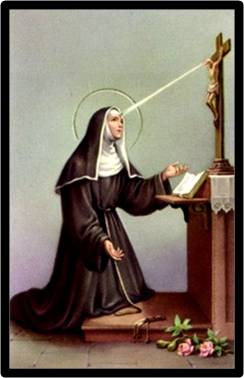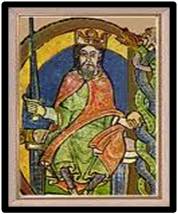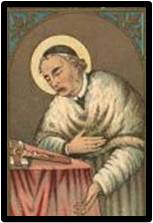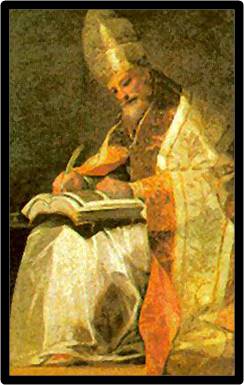MAY 22 - ST. RITA OF CASCIA

Rita was born in a little Italian village called Roccaparena in Umbria. Her parents Antonio and Amata Lotti who did not have children, begged God to send them a child. God answered their prayer and they brought Rita up well.
From a young age Rita used to visit the Augustinian nuns at Cascia and wanted to enter the convent when she was fifteen. But her parents thought that she should marry Paolo Mancini. Only, Paolo turned out to be a mean and unfaithful husband. He had such a bad temper that everyone in the neighborhood was afraid of him.
Yet, for eighteen years, his wife patiently took all his insults. Her prayers, gentleness and goodness finally won his heart. He apologized to Rita for the way he had treated her and he returned to God. Rita’s happiness over her husband’s conversion did not last long. One day, shortly after, he was murdered.
Rita was shocked and heart-broken. But she forgave the murderers, and tried to make her twin sons forgive them, too. The boys, however, could not forgive them and were determined to avenge their father’s death.
Rita prayed that they would die rather than commit murder. Within a few months, both boys became seriously ill. Rita nursed them lovingly. During their illness, she was able to help them to forgive, and to ask God’s forgiveness for themselves. They did and both died peacefully.
Now that her husband and her children were dead and she was left alone in the world, Rita tried three times to enter the convent in Cascia. The rules of the convent did not permit a woman who had been married to join even if her husband had died.
Rita refused to give up, and at last, she was allowed to join them. In the convent, Rita lived in prayer, complete obedience and was know for her charity. She had great devotion to the crucified Jesus.
Once, while praying, she asked him to let her share some of his pain. One thorn from his crown of thorns pierced her forehead and made a sore that never healed. In fact, it grew so bad and smelled so bad that St. Rita had to stay away from the others. She was happy to suffer to show her love for Jesus.
St. Rita died on May 22, 1457, when she was seventy-six. Like St. Jude, St. Rita is often called “Saint of the Impossible.”



